End of an era as legendary film critic David Stratton retires
Dealing with profound health challenges which make it ‘very painful just to sit at the computer’, David Stratton has decided to retire, ending a 33-year association with The Weekend Australian.
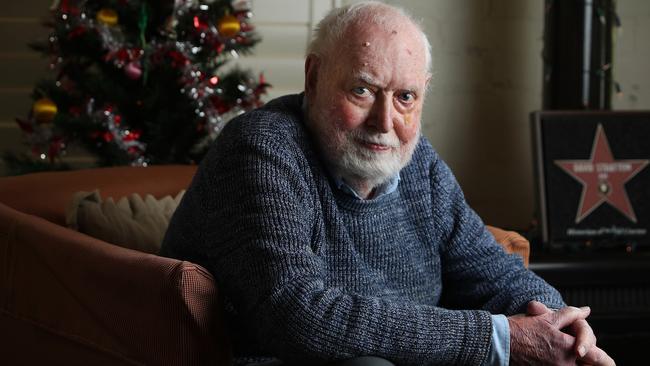
David Stratton recently spent one month in hospital “flat on my back” with a spinal fracture, while battling a Covid infection.
“I had to learn to walk again,’’ said the 84-year-old film critic. “I’ve got a walking frame and walking sticks and stairs are a challenge, but I’m getting there.’’
Stratton’s spinal fracture – his second – was caused by steroids used to prevent blindness while he undergoes treatment for a blocked brain artery. His back is now so fragile, that if “you are driving in a car and go over a bump, you can fracture a bone’’.
The “ten-pound Pom’’ who left school at 16 and emigrated to Australia in 1963, speaks of his profound health challenges with the same quiet determination he brought to his long career as a pioneering director of the Sydney Film Festival; a Cannes and Venice film festival jury member; an influential supporter of Australian films; and ultimately, as the nation’s best-known film critic.
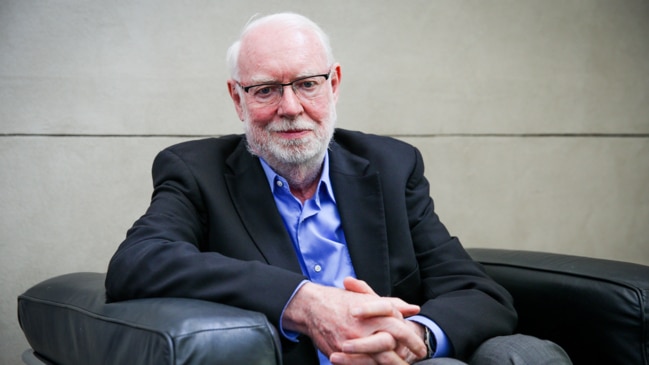
Stratton has reviewed for The Weekend Australian for more than three decades and until 2014, he spent 28 years co-hosting The Movie Show and At The Movies, going head to head with fellow critic and sparring partner Margaret Pomeranz, for SBS and the ABC.
He has also reviewed movies for the Hollywood bible, Variety.
However, in recent weeks, as his spinal injuries made it “very painful just to sit at the computer’’, Stratton reached a momentous decision: that “it’s probably time” to put away his notebook, and retire. His last review – a glowing assessment of Woody Allen’s latest film, Coup De Chance – and his retirement brings to a close a remarkable 33-year association with The Weekend Australian.
“It’s been a very good innings,’’ he said.
The depth of Stratton’s contribution to the film industry is evident in the cascade of tributes from prominent directors and actors, including Oscar winners Bruce Beresford and Peter Weir, My Brilliant Career director Gillian Armstrong, Indigenous filmmaker Warwick Thornton and award-winning auteur Rolf de Heer.
Leading actors Jack Thompson, Mia Wasikowska, Bryan Brown and Joel Edgerton also paid tribute to Stratton.
Thompson, who starred in The Man From Snowy River, said: “David has never compromised his integrity in reviewing a film, and he has never failed to support the emerging, and now emerged, Australian film industry.
“People say, ‘you are one of the people who helped to establish the renaissance in Australian film’ – and so was David.’’
Armstrong writes that Stratton has been “an incredible influence not only on my career, but on those of many other Australian filmmakers’’.
Driving Miss Daisy director Beresford counts Stratton as a friend and said his “writing on both Australian and world cinema has resulted in an astonishing degree of (deserved) celebrity’’.
Weir thanked Stratton for the “gift” of world movies he showed at the Sydney Film Festival in the 1960s, while Ten Canoes director de Heer said he was inspired by the-then bearded, “lovely koala bear of a man’’ when visiting the festival in the mid-70s.
“I was a young fellow and I looked up to him,’’ said de Heer. “Then he started reviewing for Variety and he made a difference to stuff that I did – he took it seriously, and so other people took it seriously.’’
De Heer added: “There are films of mine that he didn’t like. But there was no problem with that, because there are other films that he did like enormously.’’
However, not all directors were tolerant of Stratton’s negative reviews. In an infamous incident, Geoffrey Wright, director of the skinhead film, Romper Stomper, threw a glass of wine at Stratton during the 1994 Venice Film Festival.
Stratton said this week he was “disappointed” by this physical attack, which followed the reviewer condemning the film in Variety and on The Movie Show.
“A critic has to call it as they see it,’’ he said. “We may not be right, always, but that’s our opinion and we’re paid to express our opinion. Obviously, it’s hurtful to a filmmaker who has poured their heart and soul into a film and then gets a negative response to it … But I thought that particular incident was a little bit stupid. It was at a reception for Australian filmmakers in Venice and I was actually on the jury in Venice that year.’’
Wright – whose film has a 79 per cent critical approval rating on review website Rotten Tomatoes – has remained unapologetic, saying he would do the same again, “except with a red’’.
Despite this dispute, Stratton had a knack for befriending the famous, including Singing in the Rain’s Gene Kelly, Dustin Hoffman, German auteur Wim Wenders, Nicole Kidman and Beresford. He maintained that film critics could be friends with film-makers and actors, even after they wrote negative reviews of their famous friends’ work.
He fought against Australia’s restrictive 1960s censorship laws after he became director of the Sydney Film Festival in 1966.
“I was all worked up about it,’’ he said. “We had a number of interesting years where we were fighting the government censorship board.’’
By 1971, “we did get freedom” to show only uncensored films at the festival. He directed the then largely unsubsidised festival for 18 years, keeping it in the black, programming emerging Australian filmmakers and attracting big-name directors such as Michelangelo Antonioni to Sydney.
Asked if he had any regrets, he responded that “I really felt that I let my father down’’ when he decided to pursue a film career in Australia, rather than return to England to run his father’s retail business.
The business had been in the family since the 1820s. “He wanted me to take it over … and then he became ill and the business had to be sold and I sort of feel bad about that,’’ he said.
According to Stratton, his father felt that “directing a film festival was not a very positive thing to be doing, especially since I wasn’t paid very well to do it’’.
He chuckled as he recalled travelling behind the Iron Curtain to procure films for the festival. “My parents actually thought I was a communist,’’ he said.
“In the end, just before she died’’ his mother finally made it clear she was proud of him.
Late in his career, Stratton taught a film course at the University of Sydney, and he said it “just gets my goat’’ when people scoff at movies from the past that do not reflect contemporary mores. “I think it’s totally unfair to judge a film made in the 50s by today’s standards, because they won’t be today’s standards,’’ he said.
He modestly attributed his career success to “partly a matter of luck, I suppose, partly being in the right place at the right time’’.
During his lifetime, he has seen more than 25,000 films, and even in retirement, he plans to keep abreast of new releases.
He said: “The nice thing is that when I started telling the distributors that I was going to retire, just about all of them said, ‘Well, we can still send you copies of the new films’. … So I plan to keep seeing at least one new film a day.”
The picture show man
In the 2017 documentary A Cinematic Life, Stratton estimated that he had watched more than 25,000 movies since childhood, excluding repeat viewings. “Cinema is my life, I suppose,” the British-born critic and ex-film festival director said with striking understatement.
“It’s probably quite a few more (films) since then,’’ Stratton says now, confirming that the 1952 screen musical, Singing in the Rain, starring Kelly and Debbie Reynolds, is his favourite movie.
As a young man, Stratton went to the movies 10 times a week – taking in three sessions on Sundays. Even so, the film tragic had no idea his compulsion for sitting in darkened cinemas would be a prelude to a long and remarkable film career.
For 28 years, he cultivated a mainstream TV audience for film criticism alongside his sparring partner, Pomeranz, on SBS’s The Movie Show (1986-2004) and ABC’s At The Movies (2004-14).
These shows’ entertainment value often lay in the pair’s sharp disagreements; he came across as coolly reserved, almost professorial, while Pomeranz was a feisty, free-spirited everywoman. He tells Review he enjoyed this on-air critical jousting, and that it was “all completely spontaneous”.
Stratton became Sydney Film Festival director in 1966, when he was just 26. The self-taught film buff who had left school at 16 occupied this influential role for 18 years as he fought state censorship, championed Australian film-makers and sat on juries at the Cannes, Venice and Berlin film festivals.
In 2001, he was presented with a Commander in the Order of Arts and Letters, France’s highest cultural award, and he has two honorary doctorates.
“I still don’t understand it, really,” Stratton said of his extraordinary professional success, as his 2008 memoir, I Peed on Fellini: Recollections of a Life in Film, was released.
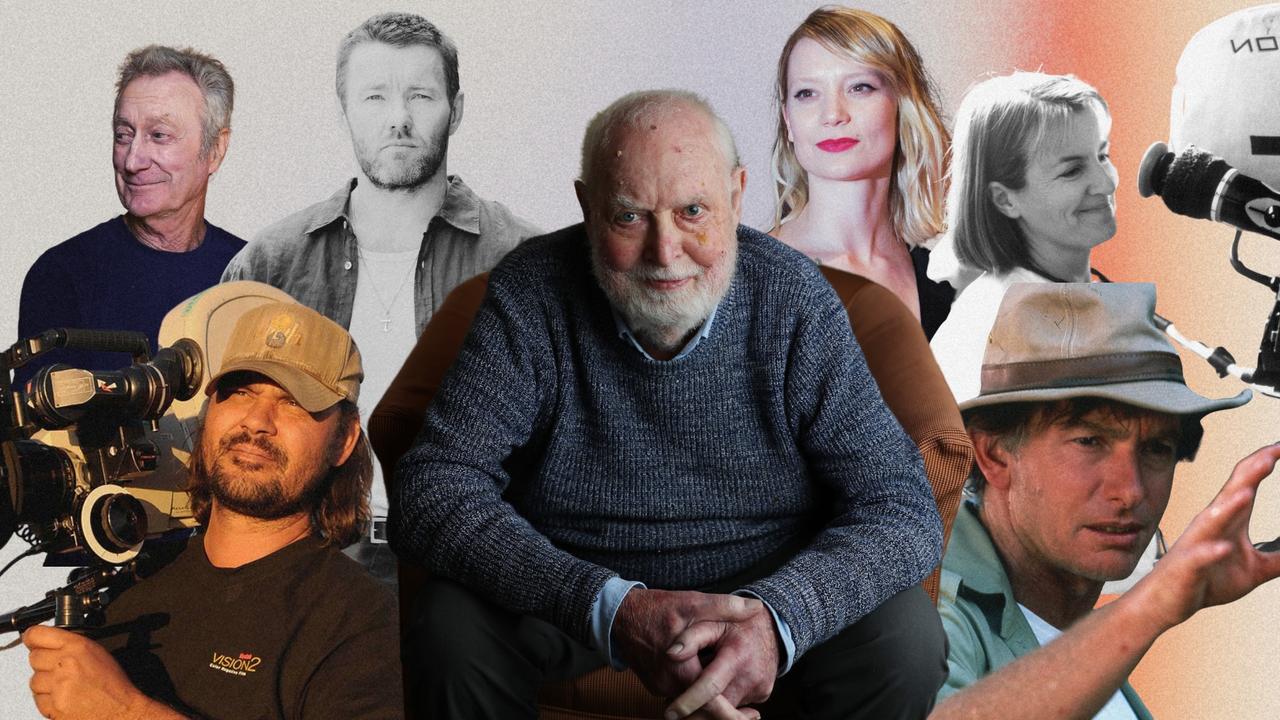
Reflecting the vital contribution Stratton has made to film, leading directors and actors have lined up to pay tribute to him. Actor Joel Edgerton says: “David retiring is like retiring a massive piece of Australian cinema history. What a contribution he has made.’’
Actor and author Bryan Brown has similar memories: “Mate, thank you for introducing us to great movies and great directors. For me it was Rainer Werner Fassbinder … From before and during the Australian film resurgence of the 60s and 70s you were always there with us, championing our filmmakers to the world.’’ He adds: “We will miss your knowledge and passion for film, never making any review about yourself.’’
Warwick Thornton jokes: “David gave me five stars for my first feature film, Samson and Delilah … So obviously I love him to death.’’ Thornton says Stratton’s “sense of cinema and storytelling is bar none, as far as I’m concerned. He has this ability to find the best films in the world. … He fought his whole life against censorship, and to bring films to this country, which is an incredibly powerful legacy.’’
Given Stratton’s long career and singular passion for film, Thornton says: “I don’t think he will retire, ever.’’
Actor Mia Wasikowska, 34, and the critic may be generations apart, but she has benefited from his insights. The Alice in Wonderland star says: “Thank you for sharing with us all the wonders of your unique perspective. The industry, Australia and myself personally are better for it.”
Stratton’s obsessive relationship with the big screen can make him seem oddly unworldly. He once admitted he didn’t know who Jerry Seinfeld, the sitcom superstar, was (Pomeranz teased him about this on air).
Stratton says he “agonised” about his memoir title – I Peed on Fellini. It refers to an incident at the 1966 Venice Film Festival when he urinated on the auteur’s shoes, after a clumsy attempt to shake his hand at a urinal. “He was so angry,’’ Stratton has said, joking that he grew a bushy beard so the great man would not recognise him.
Still, all was not lost. The faux pas furnished Stratton with this memorable, if mischievous opening line for his book: “My only encounter with Federico Fellini occurred in a toilet.”


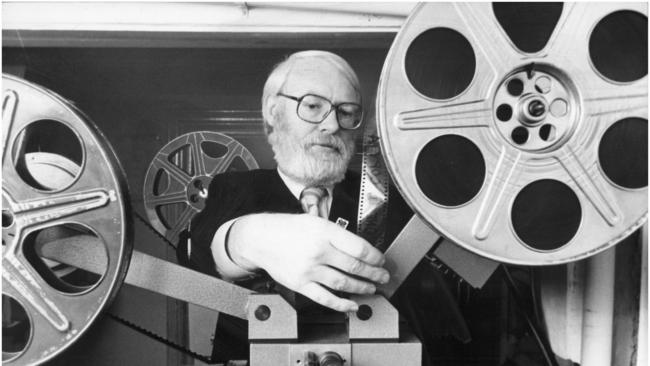
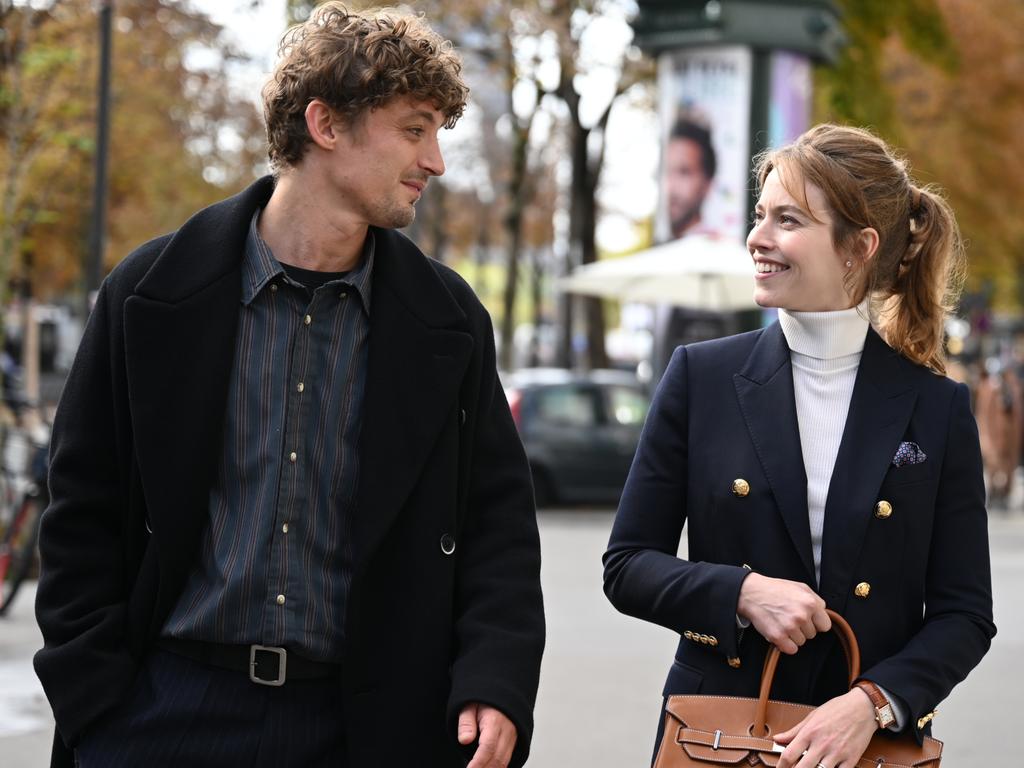
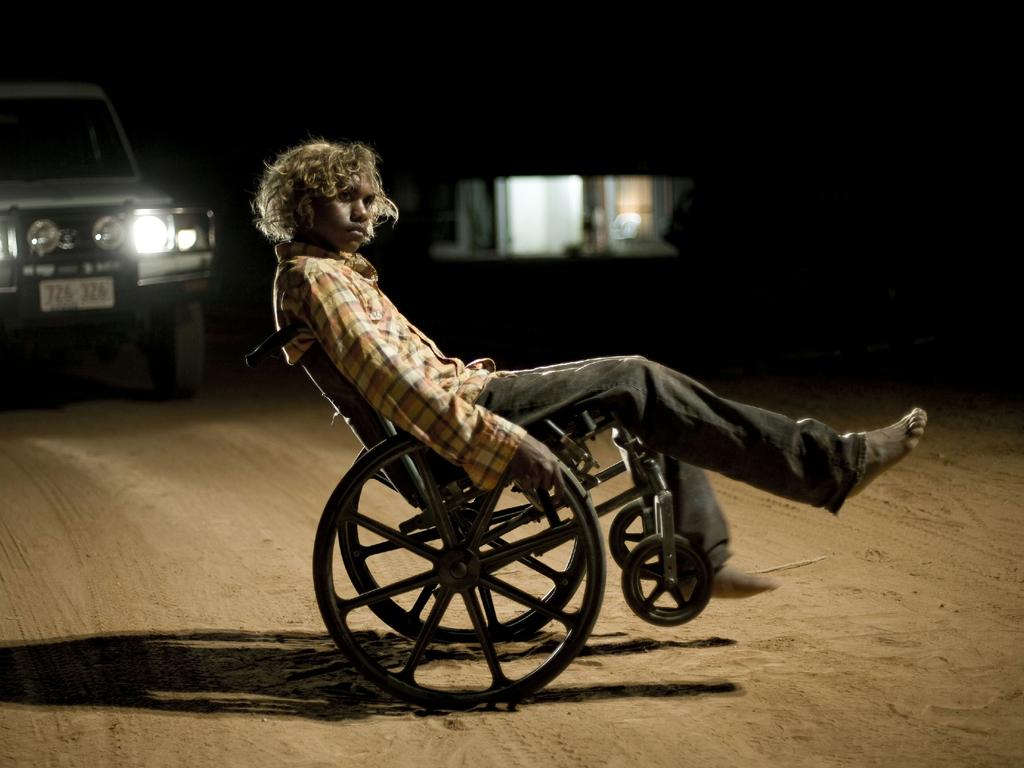

To join the conversation, please log in. Don't have an account? Register
Join the conversation, you are commenting as Logout